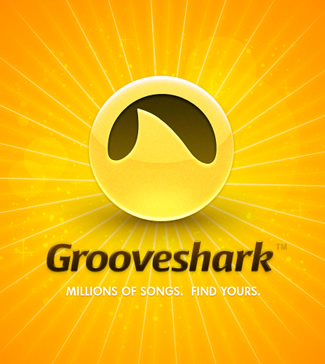Grooveshark has been the target of litigious music companies for years, most notably being sued by the three largest record label groups in the world. Supposed partner and fourth largest record label group, EMI, now has the company in its sights. The claim? Grooveshark's parent company, Escape, has not made "a single royalty payment to EMI" since the deal's inception.
Unlike Grooveshark's contentious mixture of both licensed and unlicensed songs, Spotify offers a competing catalogue filled with fully licensed music. However, the popular destination for streaming also brings bad news to the streaming scene this week. It will be limiting free users to 10 hours per month and capping the number of times a single song can be played to five times per month.
Users who signed up for "all you can eat" accounts will be transitioned to limited services in about six months. Notices should go out shortly. For users who would like to continue the same level of service, subscriptions will be $4.99/mo while the mobile app remains an additional $9.99.
Despite Grooveshark earning the unconditional ire of the music industry, EMI decided to buck the trend in 2009 by striking a deal with the online streaming website's parent, Escape. The deal allowed Grooveshark to stream EMI's music under a mutually amicable licensing agreement, actually providing the company some much needed legitimacy in the face of ongoing, public disputes. Unfortunately, if Grooveshark really hasn't been paying its royalties as EMI claims, it appears they may have burned an important bridge.
Before writing off Grooveshark as another website "dedicated to copyright infringement" though, consider what Grooveshark's VP, Paul Geller, had this to say about the legitimacy of the service earlier this year:
Grooveshark doesn't just rely on the protection of the law. We have worldwide licensing from over a thousand labels – large and small. We pay the three major U.S. performing rights organizations, as well as some international bodies, and are actively pursuing agreements with those that we don't. We recently signed Merlin, which included the Merge catalog. This was a particularly happy day for us because it brought The Arcade Fire into the family. We pay for our streams, and we actively negotiate with virtually every single content owner. We've taken down over 1.76 million files and suspended upload privileges to 22,274 users. These are not the characteristics of a company "dedicated to copyright infringement". As we work with artists and labels to make more content available to our users, Grooveshark becomes more competitive as an alternative to piracy.
As for the music which Grooveshark does not license, Geller mentions the website operates on the premise that it is protected by the DMCA's "Safe Harbor" clause. This provision indemnifies ISPs and other content providers as long as they provide reasonable effort to remove infringing content. Safe Harbor has been used in the past to protect YouTube, Google and other services but whether or not it will apply to Grooveshark is yet to be seen.
